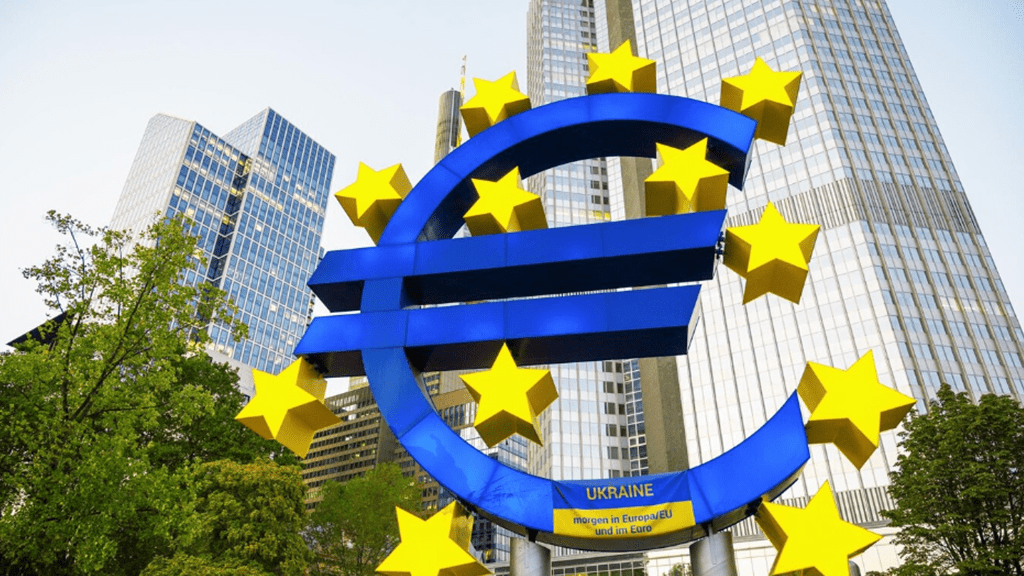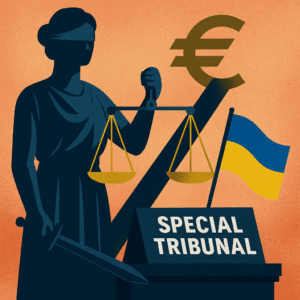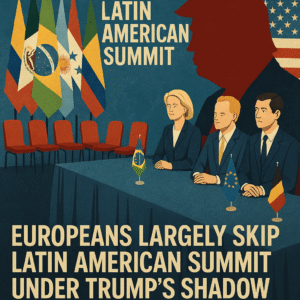
European Stocks Plunge After Tariff Escalation Sentiment

European markets declined after a new round of U.S. tariffs reignited investor concerns about corporate earnings and regional growth. The STOXX 600 slipped 0.2%, reversing earlier gains sparked by hopes of a breakthrough in EU-U.S. trade negotiations. Sectors with high exposure to American demand—such as the automotive, luxury, and banking industries—led the declines.
The trade deal announced by the Trump administration imposes a flat 15% tariff on a broad range of EU goods. While lower than the previously threatened 30%, the duties still represent a significant drag on European exporters. The impact was swift: equity markets turned risk-off, analysts downgraded earnings forecasts, and capital rotated back into U.S. equities.
Swiss stocks took a heavier hit. U.S. negotiators carved out separate tariffs for Switzerland—up to 39% on machinery, pharmaceuticals, and watches—on the grounds of competitive imbalance. The Swiss Market Index underperformed the rest of Europe as investors priced in longer-term damage to export-heavy firms.
Market sentiment across the eurozone shifted sharply. According to Sentix, confidence indices in Germany and Switzerland saw steep drops, signaling that investors have recalibrated their expectations downward heading into Q4. Eurozone GDP projections were revised down to 0.5–0.9% for the next quarter, with profit estimates for listed firms trimmed by over 2%.
Bond markets reflected the broader unease. Yields on German Bunds and Swiss government bonds fell as investors sought safe-haven assets. Concurrently, gold prices edged higher—another signal of capital flight from risk assets.
Investor attention now turns to any sectoral exemptions that might be negotiated in follow-up rounds. Agriculture, medical devices, and automotive components are key targets for potential relief. Businesses with significant U.S. exposure are expected to renegotiate contracts to include tariff-hedging clauses and accelerate market diversification strategies.
Without concessions or clear paths to rollback, European equities risk further corrections. A second wave of outflows could occur if U.S. tech and energy stocks continue to outperform, drawing capital away from European indexes. For policymakers, the challenge is whether to respond with reciprocal tariffs or seek exemptions through diplomatic channels.
European Stocks Plunge After Tariff Escalation Sentiment

Budget Crisis Threatens the Ukraine Special Tribunal Initiative
Budget shortfalls and donor hesitation are putting the Ukraine special tribunal initiative at risk, raising fears that efforts to prosecute Russian aggression could stall.

European Leaders Skip Latin American Summit Amid Trump’s Shadow
Top European leaders skip Latin American summit under Trump’s shadow, leaving the EU-CELAC talks in Colombia with minimal attendance

UK Government to Adjust Planning Overhaul to Boost Growth
he government is refining the UK planning overhaul to stimulate growth by curbing legal delays, limiting council vetoes

Sterling Falls as Slower Wage Growth Fuels Bank of England
The pound weakened after UK data showed slower wage growth, raising expectations of an early Bank of England rate cut




















